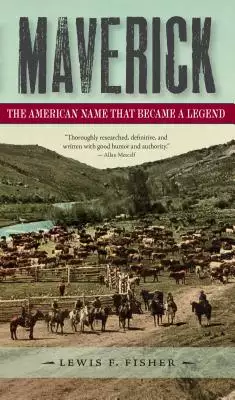Word figure legend的問題,透過圖書和論文來找解法和答案更準確安心。 我們找到下列包括價格和評價等資訊懶人包
Word figure legend的問題,我們搜遍了碩博士論文和台灣出版的書籍,推薦高振盛寫的 好萊塢經典台詞裡的美國文化 和Fisher, Lewis F.的 Maverick: The American Name That Became a Legend都 可以從中找到所需的評價。
這兩本書分別來自書林出版有限公司 和所出版 。
亞洲大學 外國語文學系 劉秀瑩所指導 莊麗櫻的 狐狸真的狡猾嗎?-從童話故事探討動物角色與比喻義的對應關係 (2021),提出Word figure legend關鍵因素是什麼,來自於童話故事、隱喻、動物譬喻。
而第二篇論文國立臺灣大學 外國語文學研究所 張小虹所指導 陳柏瑞的 華語語系張愛玲:論部首、標點符號、語末助詞 (2020),提出因為有 張愛玲、華語語系、跨語際、〈金鎖記〉、〈少帥〉、《小團圓》的重點而找出了 Word figure legend的解答。
好萊塢經典台詞裡的美國文化

為了解決Word figure legend 的問題,作者高振盛 這樣論述:
“I’ll be back!” “May the force be with you.” 這幾句來自好萊塢電影的經典台詞,大家一定不陌生,不論你有無看過電影,這些台詞已滲入日常的英語對話,成為文化的一部分。而好萊塢電影台詞是如何煉成通俗文化的一部分?為何同一句台詞的哏會被後來的電影一再「致敬」?那些我們津津樂道的電影情節背後,又有何歷史脈絡? 本書收羅近百段經典的電影名句,佐以文化及語言的背景說明,讓影迷不只看熱鬧,更能看門道。讓我們跟隨作者幽默風趣的敘述,一起回顧《教父》、《魔鬼終結者》、《007》等多部經典電影,如何影響到今天,成為全球通行的共通語言。 推薦給
老電影愛好者 英文系、電影系學生 對美國文化有興趣者 影視、戲劇工作者
狐狸真的狡猾嗎?-從童話故事探討動物角色與比喻義的對應關係
為了解決Word figure legend 的問題,作者莊麗櫻 這樣論述:
童話是孩童認識世界一個重要開端,無論是中西方的小孩在童年時候都聽過童話。然而童話故事中的動物,被賦予的義意衍生在語言上的使用是否有相對的關連性?當大人在說這些故事時,有可能完全沒有意識的到故事中動物代表的意涵,只是複製小時候上一代對他們說的故事如實流傳下去而已。本研究主要要探討童話故事對於動物詞的影響。為了証實動物詞的比喻義可能源自於童話故事,本論文將研究有出現動物的故事文本,找出該動物在故事中扮演角色特性,再與日常用語中動物比喻的語意進行比對,觀察動物詞的比喻義是否與故事的角色特性吻合。結論發現,故事中的動物角色特性與動物詞的比喻義對應性很高。此外,透過中西文化對比,我們發現不同文化若賦予
相同動物不同的角色特性,該動物詞也會因此有不同的比喻義,這也說明了童話故事對於動物詞的比喻義是有影響的。
Maverick: The American Name That Became a Legend

為了解決Word figure legend 的問題,作者Fisher, Lewis F. 這樣論述:
By definition, a maverick is a "lone dissenter" who "takes an independent stand apart from his or her associates" or "a person pursuing rebellious, even potentially disruptive policies or ideas." The word maverick has evolved in the English language from being the term for an unbranded stray calf
to a label given to a nontraditional person to a more extreme "uncontrollable individualist, iconoclast, unstable nonconformist." The word has grown into an adjective ("he made a maverick decision") and become a verb (mavericking or mavericked). Of all the words that originated in the Old West and
survive to the present day, author Lewis Fisher notes, maverick has been called the least understood and most corrupted. But where did the word come from? The word's definition is still such a mystery that Merriam-Webster lists it in the top 10 percent of its most-looked-up words. All of the origin
stories agree it had something to do with Samuel A. Maverick and his cattle, but from there things go amok rather quickly. Was Sam Maverick a cattle thief? A legendary nonconformist who broke the code of the West by refusing to brand his calves? A Texas rancher who believed branding cattle was cruel
ty to animals? A runaway from South Carolina who branded all the wild cattle he could find and ended up with more cattle than anyone else in Texas? Samuel A. Maverick was a notable landholder and public figure in his own time, but his latter-day fame is based on the legend that he was a cattle ranch
er. No amount of truth-telling about maverick seems to have slowed the tall tales surrounding the word's origination. Maverick: The American Name That Became a Legend is a whodunit, a historical telling of the man who unwittingly inspired the term, the family it's derived from, the cowboys who embra
ced it as an adjective meaning rakish and independent, the curious inquirers intrigued by its narrative, and the appropriators who have borrowed it for political fame. Texas historian (and secondhand Maverick by marriage) Lewis Fisher has combed through Maverick family papers along with cultural mem
orabilia and university collections to get at the heart of the truth behind the far-flung Maverick legends. Maverick follows the history of the word through the "Maverick gene" all the way to Hollywood and uncovers the mysteries that shadow one of our country's iconic words. Taken as a whole, the bo
ok is a fascinating portrayal of how we form, use, and change our language in the course of everyday life, and of the Maverick family's ongoing relationship to its own contributions, all seen through the lens of a story featuring cowboys, Texas Longhorns, rustlers, promoters, movie stars, athletes,
novelists, lawyers, mayors, congressmen, and senators--to say nothing of named maverick brands ranging from Ford cars and air-to-ground missiles to computer operating systems, Vermont maple syrup, and Australian wines. Ironically, given its literal meaning as unbranded, maverick is a brand name that
helped shape the history of the American West and represents the ideal of being true to oneself.
華語語系張愛玲:論部首、標點符號、語末助詞
為了解決Word figure legend 的問題,作者陳柏瑞 這樣論述:
本論文以華語語系為框架,旨在以跨語際的方式閱讀張愛玲文本中的部首、標點符號、與語末助詞。本文主張張愛玲的語言使用是介於中文/英文與國語/方言之間的,並認為張愛玲擅於運用語言的媒介性作為文學的表達方式。緒論回顧張學研究與華語語系研究的發展與不足,說明二者的批評往往侷限於再現層次,並進一步重新概念化劉禾的跨語際觀念與張愛玲的書寫。第一章討論〈金鎖記〉中的部首。本章先回顧西方理論家如費諾羅莎、德希達、雷德侯等對中國文字視覺顛覆的討論,再從張愛玲文本中提出其對中國文字的感知與美學,並認為〈金鎖記〉中的水部、金部、手部、糸部往往被用以表達文本中壓抑的慾望。第二章討論〈少帥〉中的逗號。本章在處理德希達與
阿多諾對標點符號的論述、回顧中國與西方標點符號的脈絡後,剔析出張愛玲標點符號使用的視覺、口語曖昧性,並認為〈少帥〉即便以英文創作,其中的逗號除了是源於中文的口語性、召喚了西方的標點符號發展外,更被用以表達角色間的情感與慾望。第三章討論《小團圓》中的語末助詞。本章重返劉禾跨語際觀念的核心──班雅明的翻譯性,試圖說明翻譯性與華語語系語言治理的連結,再從張愛玲後期對語末助詞的關注說明其對《小團圓》的影響,並認為《小團圓》中鑲嵌於句子的方言語末助詞是用以協商主角與父母、幫傭、戀人的關係。就張學研究而言,本文力圖擺脫批評家在再現層次上的討論,不將語言視作透明的媒介,而是說明其媒介性是張愛玲表達的焦點之一
。就華語語系而言,本文也不侷限在其對身分政治的討論,而是重新探討語言的視覺性、聽覺性、媒介性及其美學作用。